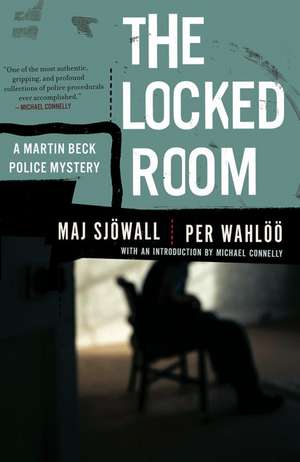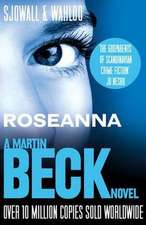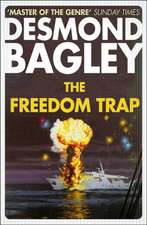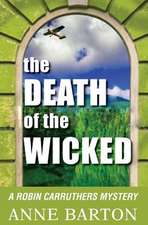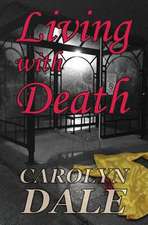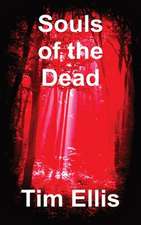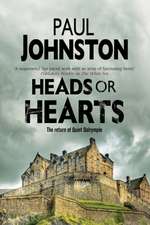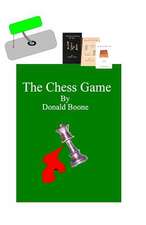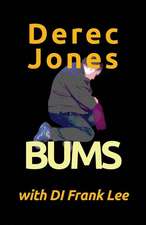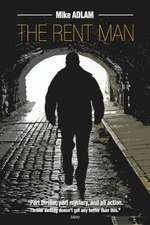The Locked Room: A Martin Beck Police Mystery (8): Vintage Crime/Black Lizard
Autor Per Wahloo, Maj Sjowall Michael Connellyen Limba Engleză Paperback – 30 sep 2009
A young blonde in sunglasses robs a bank and kills a hapless citizen. Across town, a corpse with a bullet shot through its heart is found in a locked room–with no gun at the scene. The crimes seem disparate, but to Martin Beck they are two pieces of the same puzzle, and solving it becomes the one way he can escape the pains of his failed marriage and the lingering effects of a near-fatal bullet wound. Exploring the ramifications of egotism and intellect, luck and accident, this tour de force of detection bears the unmistakable substance and gravity of real life.
| Toate formatele și edițiile | Preț | Express |
|---|---|---|
| Paperback (2) | 63.83 lei 3-5 săpt. | +10.30 lei 7-13 zile |
| HarperCollins Publishers – 5 ian 2012 | 63.83 lei 3-5 săpt. | +10.30 lei 7-13 zile |
| Vintage Crime/Black Lizard – 30 sep 2009 | 112.97 lei 3-5 săpt. |
Din seria Vintage Crime/Black Lizard
-
 Preț: 96.74 lei
Preț: 96.74 lei -
 Preț: 100.98 lei
Preț: 100.98 lei -
 Preț: 116.64 lei
Preț: 116.64 lei -
 Preț: 100.57 lei
Preț: 100.57 lei -
 Preț: 101.58 lei
Preț: 101.58 lei -
 Preț: 111.58 lei
Preț: 111.58 lei -
 Preț: 96.33 lei
Preț: 96.33 lei -
 Preț: 100.76 lei
Preț: 100.76 lei -
 Preț: 113.56 lei
Preț: 113.56 lei -
 Preț: 103.44 lei
Preț: 103.44 lei -
 Preț: 101.58 lei
Preț: 101.58 lei -
 Preț: 81.06 lei
Preț: 81.06 lei -
 Preț: 100.35 lei
Preț: 100.35 lei -
 Preț: 80.41 lei
Preț: 80.41 lei -
 Preț: 101.58 lei
Preț: 101.58 lei -
 Preț: 95.51 lei
Preț: 95.51 lei -
 Preț: 107.68 lei
Preț: 107.68 lei -
 Preț: 123.57 lei
Preț: 123.57 lei -
 Preț: 109.71 lei
Preț: 109.71 lei -
 Preț: 95.10 lei
Preț: 95.10 lei -
 Preț: 114.69 lei
Preț: 114.69 lei -
 Preț: 91.27 lei
Preț: 91.27 lei -
 Preț: 101.39 lei
Preț: 101.39 lei -
 Preț: 92.74 lei
Preț: 92.74 lei -
 Preț: 86.61 lei
Preț: 86.61 lei -
 Preț: 106.64 lei
Preț: 106.64 lei -
 Preț: 98.78 lei
Preț: 98.78 lei -
 Preț: 101.17 lei
Preț: 101.17 lei -
 Preț: 94.35 lei
Preț: 94.35 lei -
 Preț: 102.70 lei
Preț: 102.70 lei -
 Preț: 91.05 lei
Preț: 91.05 lei -
 Preț: 97.34 lei
Preț: 97.34 lei -
 Preț: 104.48 lei
Preț: 104.48 lei -
 Preț: 128.00 lei
Preț: 128.00 lei -
 Preț: 96.11 lei
Preț: 96.11 lei -
 Preț: 96.33 lei
Preț: 96.33 lei -
 Preț: 104.48 lei
Preț: 104.48 lei -
 Preț: 99.94 lei
Preț: 99.94 lei -
 Preț: 111.58 lei
Preț: 111.58 lei -
 Preț: 102.40 lei
Preț: 102.40 lei -
 Preț: 121.82 lei
Preț: 121.82 lei -
 Preț: 100.57 lei
Preț: 100.57 lei -
 Preț: 94.06 lei
Preț: 94.06 lei -
 Preț: 69.53 lei
Preț: 69.53 lei -
 Preț: 199.35 lei
Preț: 199.35 lei -
 Preț: 106.45 lei
Preț: 106.45 lei -
 Preț: 109.49 lei
Preț: 109.49 lei -
 Preț: 95.51 lei
Preț: 95.51 lei -
 Preț: 93.22 lei
Preț: 93.22 lei
Preț: 112.97 lei
Nou
Puncte Express: 169
Preț estimativ în valută:
21.62€ • 22.49$ • 18.09£
21.62€ • 22.49$ • 18.09£
Carte disponibilă
Livrare economică 22 februarie-08 martie
Preluare comenzi: 021 569.72.76
Specificații
ISBN-13: 9780307390493
ISBN-10: 0307390497
Pagini: 336
Dimensiuni: 134 x 205 x 19 mm
Greutate: 0.26 kg
Ediția:2nd ed.
Editura: Vintage Crime/Black Lizard
Seria Vintage Crime/Black Lizard
ISBN-10: 0307390497
Pagini: 336
Dimensiuni: 134 x 205 x 19 mm
Greutate: 0.26 kg
Ediția:2nd ed.
Editura: Vintage Crime/Black Lizard
Seria Vintage Crime/Black Lizard
Extras
-1-
The bells of St. Maria struck two as she came out from the subway station on Wollmar Yxkullsgatan. Before hurrying on towards the Maria Square she halted and lit a cigarette.
The din of the church bells reverberated through the air, reminding her of the dreary Sundays of her childhood. She'd been born and grown up only a few blocks from the Church of St. Maria, where she'd also been christened and confirmed-the latter almost twelve years ago. All she could remember about her confirmation classes was having asked the vicar what Strindberg had meant when he'd written of the "melancholy descant" of the St. Maria bells. But she couldn't recall his answer.
The sun was beating down on her back. After crossing St. Paulsgatan she eased her pace, not wishing to break into a sweat. All of a sudden she realized how nervous she was and regretted not having taken a tranquillizer before leaving home.
Reaching the fountain in the middle of the square, she dipped her handkerchief in the cool water and, walking away, sat down on a bench in the shade of the trees. She took off her glasses and rubbed her face with the wet handkerchief, polished her glasses with the hem of her light-blue shirt, and put them on again. The large lenses reflected the light, concealing the upper half of her face. She took off her wide-rimmed blue denim hat, lifted up her straight blond hair, so long it brushed against her shoulders, and wiped the nape of her neck. Then, putting on her hat, she pulled it down over her brow and sat quite still, her handkerchief crumpled up into a ball between her hands.
After a while she spread the handkerchief out beside her on the bench and wiped the palms of her hands on her jeans. She looked at her watch: half past two. A few minutes to calm down before she had to go.
When the clock struck 2 :45 she opened the flap of the dark-green canvas shoulder bag that lay in her lap, picked up her handkerchief, which by now was completely dry, and without folding it slipped it into the bag. Then she got up, slung the leather strap of the bag over her right shoulder, and started walking.
Approaching Hornsgatan she grew less tense; everything, she persuaded herself, would work out fine.
It was Friday, the last day of June, and for many people the summer vacation had just begun. On Hornsgatan, both on the street itself and on the sidewalks, the traffic was lively. Emerging from the square, she turned off to the left and went into the shadow of the houses.
She hoped today had been a' wise choice. She'd weighed the pros and cons and realized she might have to put off her project until next week. No harm in that, though she wasn't too keen on exposing herself to such mental stress.
She got there earlier than she'd planned and halted on the shady side of the street, observing the big window opposite her. Its shiny glass reflected the sunshine, and the heavy traffic partially blocked her view. But one thing she noticed. The curtains were drawn.
Pretending to be window shopping, she walked slowly up and down the sidewalk, and although there was a large clock hanging outside a watchmaker's shop nearby she kept looking at her watch. And all the while she kept an eye on the door on the other side of the street.
At 2:55 she walked over to the crosswalk at the intersection. Four minutes later she was standing outside the door of the bank.
Before pushing it open, she lifted the flap of her bag. Walking in, she let her gaze sweep over the office, a branch of one of Sweden's major banks. It was long and narrow; the front wall consisted of the door and the only window. To her right a counter ran all the way from the window to the short wall at the other end, and on her left four desks were fixed to the long wall. Beyond them were a low, round table and two stools upholstered in red-checked material. Furthest away were some stairs, rather steep, disappearing below to what presumably was the bank's safe deposit vault.
Only one customer had come in before her-a man. He was standing at the counter, stuffing banknotes and documents into his briefcase. Behind the counter two female clerks were sitting. Further away a male clerk stood leafing through a card index.
Going up to one of the desks, she fished out a pen from the outer pocket of her bag, meanwhile watching out of the corner of her eye as the customer with the briefcase went out through the street door. Taking a deposit slip out of the holder, she began doodling on it. After a little while she saw the male clerk go over to the door and lock it. Then he bent down and flicked the hook holding open the inner door. As it swung closed with a hissing sound, he resumed his place behind the counter.
She took her handkerchief out of her bag. Holding it in her left hand and the deposit slip in her right, as she approached the counter, she pretended to blow her nose.
Then she stuffed the deposit slip into her bag, brought out an empty nylon shopping bag, and laid it on the counter. Clutching her pistol, she pointed it at the female cashier and, holding her handkerchief in front of her mouth, said: "This is a holdup. The pistol's loaded and if you make any trouble I'll shoot. Put all the money you've got into this bag."
The woman behind the counter stared at her and, slowly taking the nylon bag, laid it down in front of her. The other woman stopped combing her hair. Her hands sank slowly. She opened her mouth as if to say something, but couldn't get a sound out. The man, who was still standing behind his desk, gave a violent start.
Instantly she pointed the pistol at him and yelled: "Stay where you are! And put your hands where I can see them."
Impatiently waving the barrel of the pistol at the woman in front of her, who was obviously paralyzed with fright, she went on: "Hurry up with the money! All of it!" The cashier began stuffing wads of bills into the bag. When she'd finished, she laid it on the counter.
Suddenly the man at the desk said: "You'll never get away with this. The police will-"
"Shut up!" she screamed.
Then she threw her handkerchief into her open bag and grabbed the nylon shopping bag. It felt nice and heavy. Backing slowly toward the door, she pointed the pistol at each of the bank's employees in turn.
All of a sudden someone came running toward her from the stairway at the far end of the room: a tall, blond man in well-pressed pants and a blue blazer with shiny buttons and a big gold emblem stitched to the breast pocket.
A loud bang filled the room and went on thundering between the walls. As her arm jerked upward to the ceiling she saw the man in the blazer being flung backwards. His shoes were brand new and white, with thick, grooved, red rubber soles. Only as his head hit the stone floor with a horrible dull thud did she realize she'd shot him.
Dropping the pistol into her bag, she stared wild-eyed at the three horror-stricken people behind the counter. Then she rushed for the door. Fumbling with the lock, she had time to think before emerging into the street: "Calm now, I must walk perfectly calmly." But once out on the sidewalk, she started half-running towards the intersection.
She didn't see the people around her-she was only aware of bumping against several of them and of the pistol shot which went on thundering in her ears.
She rounded the corner and started running, the shopping bag in her hand and the heavy satchel bumping against her hip. Jerking open the door of the building where she'd lived as a child, she took the old familiar way out into the yard, checked herself, and fell to a walk. Passing straight through the porch of a gazebo she came out into another back yard. She descended the steep stairway into a cellar and sat down on the bottom step.
She tried to cram the nylon bag down on top of the automatic in her shoulder bag, but there wasn't enough room. She took off her hat, glasses, and blond wig, and stuffed them all into the shoulder bag. Her own hair was dark and short. She stood up, unbuttoned her shirt, took it off, and put that too into the bag. Under her shirt she was wearing a short-sleeved black cotton sweater. Slinging the shoulder bag over her left shoulder, she picked up the nylon shopping bag and went up the stairs to the yard again. She climbed over a couple of walls before at last finding herself in a street at the far end of the block.
Then she entered a small grocery, bought two liters of milk, put the cartons into a large paper bag, and laid her nylon shopping bag on top of them.
After which she walked down to Slussen and took the subway train home.
-2-
Gunvald Larsson arrived at the scene of the crime in his own strictly private car. It was a red EMW, which is unusual in Sweden and in many people's eyes far too grand for a detective inspector, especially when he uses it on the job.
This beautiful Friday afternoon he'd just settled down behind the wheel to drive home, when Einar Ronn had come rushing out into the yard of police headquarters and dashed all his plans for a quiet evening at home in Bollmora. Einar Ronn too was a detective inspector in the National Homicide Squad and very likely the only friend Gunvald Larsson had; so when he said he was sorry but Gunvald Larsson would have to sacrifice his free evening, he really meant it.
Ronn drove to Hornsgatan in a police car. When he got there, several cars and some people from the South Precinct were already on the spot, and Gunvald Larsson was already inside the bank.
A little group of people had gathered outside the bank, and as Ronn crossed the sidewalk one of the uniformed patrolmen who stood there glaring at the spectators came up to him and said: "I've a couple of witnesses here who said they heard the shot. What shall I do with them?"
"Hold 'em a moment," Ronn said. "And try to disperse the others."
The patrolman nodded and Ronn went on into the bank.
On the marble floor between the counter and the desks the dead man, his arms flung wide and his left knee bent, lay on his back. One trouser leg had slipped up, baring a chalk-white OrIon sock with a dark blue anchor on it and a deeply sunburned leg covered with gleaming blond hairs. The bullet had hit him right in the face, and blood and brain matter had exuded from the back of his head.
The staff of the bank were sitting together in the far corner of the room, and in front of them Gunvald Larsson half stood, half sat, one thigh across the edge of a desk. He was writing in a notebook while one of the women spoke in a shrill, indignant voice.
Seeing Ronn, Gunvald Larsson held up his right palm at the woman, who immediately broke off in the middle of a sentence. Gunvald Larsson got up, went behind the counter, and, notebook in hand, walked over to Ronn. With a nod at the man on the floor he said:
"He doesn't look too good. If you stay here I can take the witnesses someplace, maybe .to the old precinct house on Rosenlundsgatan. Then you can work here undisturbed."
Ronn nodded. "They say it was a girl who did it," he said. "And she got away with the cash. Did anyone see where she went?"
"None of the bank staff anyway," Gunvald Larsson said. "Apparently there was a guy standing outside who saw a car drive off, but he didn't see the number and wasn't too sure of the make, so that's not much to go on. I'll talk with him later."
"And who's this?" asked Ronn with a curt nod at the dead man.
"Some idiot wanting to play the hero. He tried to fling himself at the robber, and then of course, in sheer panic, she fired. He was one of the bank's customers and the staff knew him. He'd been in here going through his safe deposit box and came up the stairway over there, right in the middle of it all." Gunvald Larsson consulted his notebook. "He was director of a gymnastics institute, and his name was Girdon. With an 'a.' "
"I guess he thought he was Flash Gordon," Ronn said.
Gunvald Larsson threw him a questioning look.
Ronn blushed, and to change the subject said: "Well, I guess there are some photos of her in that thing." He pointed to the camera fixed beneath the ceiling.
"If it's properly focused and also has some film in it," Gunvald Larsson said skeptically. "And if the cashier remembered to press the button."
Nowadays most Swedish banks are equipped with cameras that shoot when the cashier on duty steps on a button on the floor. This was the only thing the staff had to do in the event of a holdup. With armed bank robberies becoming ever more frequent, banks had issued orders to their staffs to hand over any money demanded of them and in general not to do anything to stop robbers or to prevent them getting away that might risk their own lives. This order did not, as one might be led to believe, derive from any humanitarian motives or any consideration for bank personnel. It was the fruit of experience. It is cheaper for banks and insurance companies to allow robbers to get away with their haul than to be obliged to payout damages and maybe even support the victims' families for the rest of their lives-which can so easily be the case if someone gets injured or killed.
Now the police surgeon arrived, and Ronn went out to his car to fetch the homicide bag. He used old-fashioned methods, not unusually with success. Gunvald Larsson left for the old police station on Rosenlundsgatan, together with the staff of the bank and four other people who had identified themselves as witnesses.
He was lent an interrogation room, where he took off his suede jacket and hung it over the back of a chair before beginning the preliminary examinations. The first three statements given by the bank personnel were as good as identical; the four others diverged widely.
The bells of St. Maria struck two as she came out from the subway station on Wollmar Yxkullsgatan. Before hurrying on towards the Maria Square she halted and lit a cigarette.
The din of the church bells reverberated through the air, reminding her of the dreary Sundays of her childhood. She'd been born and grown up only a few blocks from the Church of St. Maria, where she'd also been christened and confirmed-the latter almost twelve years ago. All she could remember about her confirmation classes was having asked the vicar what Strindberg had meant when he'd written of the "melancholy descant" of the St. Maria bells. But she couldn't recall his answer.
The sun was beating down on her back. After crossing St. Paulsgatan she eased her pace, not wishing to break into a sweat. All of a sudden she realized how nervous she was and regretted not having taken a tranquillizer before leaving home.
Reaching the fountain in the middle of the square, she dipped her handkerchief in the cool water and, walking away, sat down on a bench in the shade of the trees. She took off her glasses and rubbed her face with the wet handkerchief, polished her glasses with the hem of her light-blue shirt, and put them on again. The large lenses reflected the light, concealing the upper half of her face. She took off her wide-rimmed blue denim hat, lifted up her straight blond hair, so long it brushed against her shoulders, and wiped the nape of her neck. Then, putting on her hat, she pulled it down over her brow and sat quite still, her handkerchief crumpled up into a ball between her hands.
After a while she spread the handkerchief out beside her on the bench and wiped the palms of her hands on her jeans. She looked at her watch: half past two. A few minutes to calm down before she had to go.
When the clock struck 2 :45 she opened the flap of the dark-green canvas shoulder bag that lay in her lap, picked up her handkerchief, which by now was completely dry, and without folding it slipped it into the bag. Then she got up, slung the leather strap of the bag over her right shoulder, and started walking.
Approaching Hornsgatan she grew less tense; everything, she persuaded herself, would work out fine.
It was Friday, the last day of June, and for many people the summer vacation had just begun. On Hornsgatan, both on the street itself and on the sidewalks, the traffic was lively. Emerging from the square, she turned off to the left and went into the shadow of the houses.
She hoped today had been a' wise choice. She'd weighed the pros and cons and realized she might have to put off her project until next week. No harm in that, though she wasn't too keen on exposing herself to such mental stress.
She got there earlier than she'd planned and halted on the shady side of the street, observing the big window opposite her. Its shiny glass reflected the sunshine, and the heavy traffic partially blocked her view. But one thing she noticed. The curtains were drawn.
Pretending to be window shopping, she walked slowly up and down the sidewalk, and although there was a large clock hanging outside a watchmaker's shop nearby she kept looking at her watch. And all the while she kept an eye on the door on the other side of the street.
At 2:55 she walked over to the crosswalk at the intersection. Four minutes later she was standing outside the door of the bank.
Before pushing it open, she lifted the flap of her bag. Walking in, she let her gaze sweep over the office, a branch of one of Sweden's major banks. It was long and narrow; the front wall consisted of the door and the only window. To her right a counter ran all the way from the window to the short wall at the other end, and on her left four desks were fixed to the long wall. Beyond them were a low, round table and two stools upholstered in red-checked material. Furthest away were some stairs, rather steep, disappearing below to what presumably was the bank's safe deposit vault.
Only one customer had come in before her-a man. He was standing at the counter, stuffing banknotes and documents into his briefcase. Behind the counter two female clerks were sitting. Further away a male clerk stood leafing through a card index.
Going up to one of the desks, she fished out a pen from the outer pocket of her bag, meanwhile watching out of the corner of her eye as the customer with the briefcase went out through the street door. Taking a deposit slip out of the holder, she began doodling on it. After a little while she saw the male clerk go over to the door and lock it. Then he bent down and flicked the hook holding open the inner door. As it swung closed with a hissing sound, he resumed his place behind the counter.
She took her handkerchief out of her bag. Holding it in her left hand and the deposit slip in her right, as she approached the counter, she pretended to blow her nose.
Then she stuffed the deposit slip into her bag, brought out an empty nylon shopping bag, and laid it on the counter. Clutching her pistol, she pointed it at the female cashier and, holding her handkerchief in front of her mouth, said: "This is a holdup. The pistol's loaded and if you make any trouble I'll shoot. Put all the money you've got into this bag."
The woman behind the counter stared at her and, slowly taking the nylon bag, laid it down in front of her. The other woman stopped combing her hair. Her hands sank slowly. She opened her mouth as if to say something, but couldn't get a sound out. The man, who was still standing behind his desk, gave a violent start.
Instantly she pointed the pistol at him and yelled: "Stay where you are! And put your hands where I can see them."
Impatiently waving the barrel of the pistol at the woman in front of her, who was obviously paralyzed with fright, she went on: "Hurry up with the money! All of it!" The cashier began stuffing wads of bills into the bag. When she'd finished, she laid it on the counter.
Suddenly the man at the desk said: "You'll never get away with this. The police will-"
"Shut up!" she screamed.
Then she threw her handkerchief into her open bag and grabbed the nylon shopping bag. It felt nice and heavy. Backing slowly toward the door, she pointed the pistol at each of the bank's employees in turn.
All of a sudden someone came running toward her from the stairway at the far end of the room: a tall, blond man in well-pressed pants and a blue blazer with shiny buttons and a big gold emblem stitched to the breast pocket.
A loud bang filled the room and went on thundering between the walls. As her arm jerked upward to the ceiling she saw the man in the blazer being flung backwards. His shoes were brand new and white, with thick, grooved, red rubber soles. Only as his head hit the stone floor with a horrible dull thud did she realize she'd shot him.
Dropping the pistol into her bag, she stared wild-eyed at the three horror-stricken people behind the counter. Then she rushed for the door. Fumbling with the lock, she had time to think before emerging into the street: "Calm now, I must walk perfectly calmly." But once out on the sidewalk, she started half-running towards the intersection.
She didn't see the people around her-she was only aware of bumping against several of them and of the pistol shot which went on thundering in her ears.
She rounded the corner and started running, the shopping bag in her hand and the heavy satchel bumping against her hip. Jerking open the door of the building where she'd lived as a child, she took the old familiar way out into the yard, checked herself, and fell to a walk. Passing straight through the porch of a gazebo she came out into another back yard. She descended the steep stairway into a cellar and sat down on the bottom step.
She tried to cram the nylon bag down on top of the automatic in her shoulder bag, but there wasn't enough room. She took off her hat, glasses, and blond wig, and stuffed them all into the shoulder bag. Her own hair was dark and short. She stood up, unbuttoned her shirt, took it off, and put that too into the bag. Under her shirt she was wearing a short-sleeved black cotton sweater. Slinging the shoulder bag over her left shoulder, she picked up the nylon shopping bag and went up the stairs to the yard again. She climbed over a couple of walls before at last finding herself in a street at the far end of the block.
Then she entered a small grocery, bought two liters of milk, put the cartons into a large paper bag, and laid her nylon shopping bag on top of them.
After which she walked down to Slussen and took the subway train home.
-2-
Gunvald Larsson arrived at the scene of the crime in his own strictly private car. It was a red EMW, which is unusual in Sweden and in many people's eyes far too grand for a detective inspector, especially when he uses it on the job.
This beautiful Friday afternoon he'd just settled down behind the wheel to drive home, when Einar Ronn had come rushing out into the yard of police headquarters and dashed all his plans for a quiet evening at home in Bollmora. Einar Ronn too was a detective inspector in the National Homicide Squad and very likely the only friend Gunvald Larsson had; so when he said he was sorry but Gunvald Larsson would have to sacrifice his free evening, he really meant it.
Ronn drove to Hornsgatan in a police car. When he got there, several cars and some people from the South Precinct were already on the spot, and Gunvald Larsson was already inside the bank.
A little group of people had gathered outside the bank, and as Ronn crossed the sidewalk one of the uniformed patrolmen who stood there glaring at the spectators came up to him and said: "I've a couple of witnesses here who said they heard the shot. What shall I do with them?"
"Hold 'em a moment," Ronn said. "And try to disperse the others."
The patrolman nodded and Ronn went on into the bank.
On the marble floor between the counter and the desks the dead man, his arms flung wide and his left knee bent, lay on his back. One trouser leg had slipped up, baring a chalk-white OrIon sock with a dark blue anchor on it and a deeply sunburned leg covered with gleaming blond hairs. The bullet had hit him right in the face, and blood and brain matter had exuded from the back of his head.
The staff of the bank were sitting together in the far corner of the room, and in front of them Gunvald Larsson half stood, half sat, one thigh across the edge of a desk. He was writing in a notebook while one of the women spoke in a shrill, indignant voice.
Seeing Ronn, Gunvald Larsson held up his right palm at the woman, who immediately broke off in the middle of a sentence. Gunvald Larsson got up, went behind the counter, and, notebook in hand, walked over to Ronn. With a nod at the man on the floor he said:
"He doesn't look too good. If you stay here I can take the witnesses someplace, maybe .to the old precinct house on Rosenlundsgatan. Then you can work here undisturbed."
Ronn nodded. "They say it was a girl who did it," he said. "And she got away with the cash. Did anyone see where she went?"
"None of the bank staff anyway," Gunvald Larsson said. "Apparently there was a guy standing outside who saw a car drive off, but he didn't see the number and wasn't too sure of the make, so that's not much to go on. I'll talk with him later."
"And who's this?" asked Ronn with a curt nod at the dead man.
"Some idiot wanting to play the hero. He tried to fling himself at the robber, and then of course, in sheer panic, she fired. He was one of the bank's customers and the staff knew him. He'd been in here going through his safe deposit box and came up the stairway over there, right in the middle of it all." Gunvald Larsson consulted his notebook. "He was director of a gymnastics institute, and his name was Girdon. With an 'a.' "
"I guess he thought he was Flash Gordon," Ronn said.
Gunvald Larsson threw him a questioning look.
Ronn blushed, and to change the subject said: "Well, I guess there are some photos of her in that thing." He pointed to the camera fixed beneath the ceiling.
"If it's properly focused and also has some film in it," Gunvald Larsson said skeptically. "And if the cashier remembered to press the button."
Nowadays most Swedish banks are equipped with cameras that shoot when the cashier on duty steps on a button on the floor. This was the only thing the staff had to do in the event of a holdup. With armed bank robberies becoming ever more frequent, banks had issued orders to their staffs to hand over any money demanded of them and in general not to do anything to stop robbers or to prevent them getting away that might risk their own lives. This order did not, as one might be led to believe, derive from any humanitarian motives or any consideration for bank personnel. It was the fruit of experience. It is cheaper for banks and insurance companies to allow robbers to get away with their haul than to be obliged to payout damages and maybe even support the victims' families for the rest of their lives-which can so easily be the case if someone gets injured or killed.
Now the police surgeon arrived, and Ronn went out to his car to fetch the homicide bag. He used old-fashioned methods, not unusually with success. Gunvald Larsson left for the old police station on Rosenlundsgatan, together with the staff of the bank and four other people who had identified themselves as witnesses.
He was lent an interrogation room, where he took off his suede jacket and hung it over the back of a chair before beginning the preliminary examinations. The first three statements given by the bank personnel were as good as identical; the four others diverged widely.
Notă biografică
Maj Sjöwall and Per Wahlöö, her husband and coauthor, wrote ten Martin Beck mysteries. Mr Wahlöö, who died in 1975, was a reporter for several Swedish newspapers and magazines and wrote numerous radio and television plays, film scripts, short stories, and novels. Maj Sjöwall is also a poet.
Recenzii
“The best yet in a superb series of mysteries.”–Minneapolis Tribune
.
“One of the most authentic, gripping and profound collections of police procedurals ever accomplished.”–Michael Connelly
“It’s hard to think of any other thriller writers (apart from Simenon perhaps) who can capture so much of a society in a couple of hundred pages and yet still hold true to the thriller form.”–Sean and Nicci French
“Lively, stylistically taut . . . Sjöwall and Wahlöö changed the genre.”–Henning Mankell
.
“One of the most authentic, gripping and profound collections of police procedurals ever accomplished.”–Michael Connelly
“It’s hard to think of any other thriller writers (apart from Simenon perhaps) who can capture so much of a society in a couple of hundred pages and yet still hold true to the thriller form.”–Sean and Nicci French
“Lively, stylistically taut . . . Sjöwall and Wahlöö changed the genre.”–Henning Mankell
Descriere
A young blonde in sunglasses robs a bank and kills a hapless citizen. Across town, a corpse with a bullet shot through its heart is found in a locked room--with no gun at the scene. The crimes seem disparate, but to Martin Beck they are two pieces of the same puzzle.
